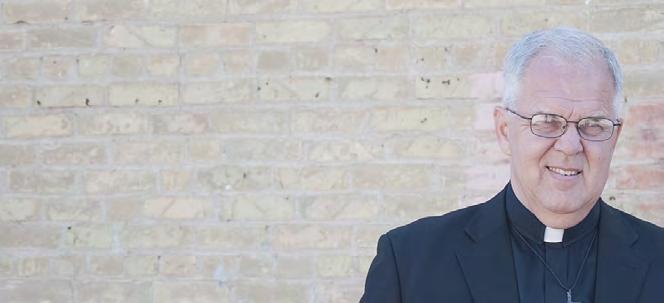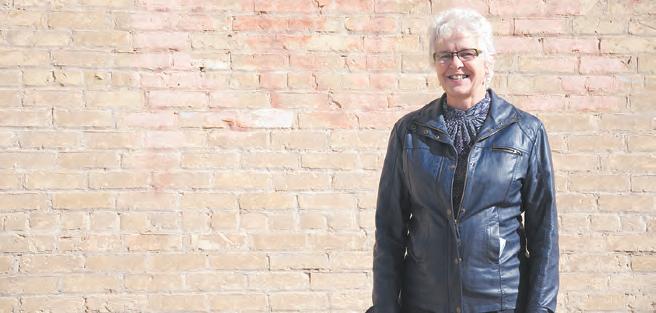
3 minute read
Seeking contentment We are “family”
from January 27, 2023
It was another ordinary day in ancient Athens, Greece. Most of the city’s residents were going about their daily routines-working at their jobs or visiting the markets to stock up on needed supplies. But as part of their daily routine, most Athenians stopped by the Areopagus to see which philosopher had come to town, to discover what “new thing” was being discussed and to take part in the debate.
On this day, they were in for a surprise. A man named Paul of Tarsus was being led into the crowd and asked to explain his “new teaching” that was filled with “things that sounded rather strange” to the cultured ears of the Athenians.
Advertisement
What they didn’t know was that Paul was way ahead of them. He had been walking around the city; taking in the sights and sounds of a place filled with people from all parts of the ancient Roman empire. As different groups of people moved into Athens, they brought their religious beliefs with them and before long, temples and shrines to gods of all kinds could be found within the city’s walls.
One shrine caught Paul’s eye. It was dedicated to “An Unknown God.” The Athenians were very religions. They were also very superstitious. They knew what would happen if they offended a god whose name they knew. But they feared what might happen if they offended a god about whom they knew nothing. So they built a shrine and offered sacrifices to an unknown God; just to avoid offending it. That gave Paul the opening he needed to share the good news of Jesus Christ with these people.
He began by telling them what he had seen and then made this incredible statement. “I am going to tell you about this unknown God. He is the God who ‘from one ancestor, made all nations to inhabit the whole earth, and he allotted the times of their existence and the boundaries of the places where they would live, so that they would search for God and perhaps grope for him and find him-though indeed he is not far from each one of us.’” (Acts 14:26-27)
Whenever I read those words, I am moved by their significance. They reveal a truth that has been discussed argued, disputed and despised through the centuries. But nothing can change the fact they convey-that every person on this earth can trace his or her ancestry to one common ancestor-to the first human pair about whom we read in the opening chapters of the book of Genesis.
How we got to where we are at this point in history is a long story-far too long to tell in a year’s worth and experienced, then surely God can give us the strength to forgive others and to carry on with the burdens of life. There are two other touchstones in my life. One is my father taught me the importance of making people laugh. The other one, is to serve, my mother (aided by dad sometimes) taught me to serve. Find a way in the world to serve. And lastly, there are millions of problems in the world thrown into our minds by media all the time. We now know instantly when tragedy or violence strikes. We can’t solve all the problems. We can solve some but not them all. Forgive, laugh, serve others and God. Therein lies the key, not necessarily to happiness but to contentment.
Disclaimer: The views expressed in this column are the writer’s personal views and are not to be taken as being the view of the Banner staff.
Faithfully Yours
NEIl STRoHSCHEIN

of columns. And while that history is important and while it reveals some significant issues with which we must deal, it can never blind us to the fact that we all have a common ancestor, which means that “we are family.”
To me at least, the implications of those three words are staggering-so staggering that I plan to devote the next two or three columns to exploring what this means; and how it can change the way we interact with people whose countries of origin, backgrounds, customs, cultures and core beliefs differ from our own. As part of the same family, we owe it to ourselves and others to treat everyone we meet with the same dignity and respect we expect to receive from them. We will explore this idea further next week.
Home Bodies
By Rita FRiesen

i may Be getting old… cared for. As the ewes settled down for their feed, the lambs rejoiced in their open play space, cavorting and stiff leg prancing with glee. The cows munched and crunched while the sound of milk filling the pail changed with the depth of the liquid. From the ping, ping, to the shush, shush, the froth and foam on the surface acting as a silencer. Even the cats, accepting a well directed stream of milk direct from the cow while waiting the bowl full, grew silent. I know the ‘old’ is romanticising the work!!






